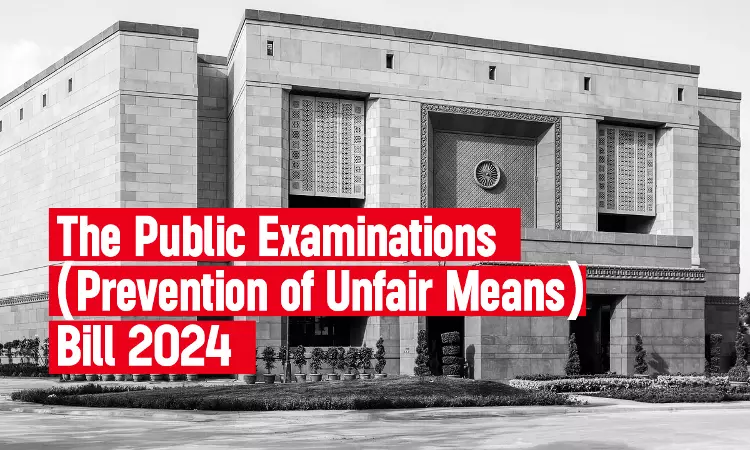Parliament Clears Public Examinations (Prevention Of Unfair Means) Bill, 2024
Debby Jain
9 Feb 2024 8:12 PM IST

Next Story
9 Feb 2024 8:12 PM IST
In an attempt to arrest cheating in government recruitment exams, the Parliament on February 9 cleared the Public Examinations (Prevention of Unfair Means) Bill, 2024, which aims to prevent use of “unfair means” in public examinations in order to bring "greater transparency, fairness and credibility”.Recognizing that as on date, there is no substantive law dealing with adoption of...
